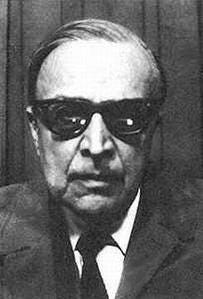The didactic relationship
The relationship between aggressor and victim will be given distinct names: the sly and the scandal. The sly and the scandal are personality profiles I’ve developed to explain conflict-resolution in cosmopolitanism. For Guy Brousseau, a French Mathematician and educator, the didactic contract is “a system of reciprocal obligations” between teacher and student (Hausberger, 2021, 1). According to Brousseau’s theory, both teacher and student enter into contract where the teacher aims “the target knowledge” to be acquired by the student. The student expects a style of learning and then modifying his learning habits to fit that of his teacher “rather than developing adequate understanding of the knowledge aimed at” (Hausberger, 2021, 3). The teacher has the duty to organize and present the material. Expectation, or a forward intent to push a result, can attempt to force a lesson onto someone and it can antagonize the. The student somehow allows himself to be taught be the teacher. Teachers gives basic respect and acknowledgment to the student and the student agrees to be talked down to in a way that serves learning. Otherwise the relationship would turn antagonistic. However, a confrontation must still occur. The teacher must confront the student in a backward-facing style, by paradoxically preventing him from attaining “the target knowledge” while at the same time teaching it. This is done to resolve a central paradox that lie with both student-teacher and sly-scandal relationships. We will take a look into the resolution process of the two relationships of conflict resolution.
Brousseaus’s theory states that “part of the contract remains implicit and must be uncovered by students” (Hausberger, 2021, 5). The student is allowed a degree of freedom to find out for himself. This is unlike the “banking model” of pedagogy that Paulo Freire criticized in this Pedagogy of the Oppressed where the teacher feeds the knowledge right to the minds of students. A tendency to deposit “the target knowledge” into the minds of students is too forward. Yet, teachers will have to deprive the student of the very behaviors they come to expect (wikipedia). Students will be confronted by teachers into taking charge of their own learning and hardly ever rebel against their teachers. The contract spells out the inherent price to pay for learning.
The insult
When contracts are violated, we instinctively react with offense. We can all recall experiences where we were told “it’s for your own good” or “you’ll learn when you grow up” or “I’ll teach you a lesson” implying pain, discomfort, or unpleasant sensations are necessary for learning. How can conflict resolution happen as the lesson is being learned.
Conflict resolution involves letting conflict reach its conclusion (exhaustion). This interpretation requires both parties to release some control of the situation. But, if the sly can have the scandal reach auto-injury, the sly maintain complete control while the scandal can do all the work to insult himself. For Brousseau, the teacher resolves the contradiction by having his students attain for themselves the education of “the target knowledge.” Here we have a final destination: acquiring knowledge. But what if we remove that final cause? For the sly, he resolves the contradiction by vanishing the object-of-desire. People fight over things they want—whether it’s a job, an idea, or just being right in an argument. Whenever conflict arise out of pure knowledge alone, people become untethered from external threats out there. If the object can become something more subjective, ethereal, or value-driven, the object-of-desire can become less material and more ideal. It enters the minds of people easily, like an infection. The sly is someone who overcomes knowledge by revealing knowledge. The scandal reacts to knowledge. The strategy that each relies on changes from offensive to defensive or vice versa. Knowledge is created under duress.
The Strategy of the Sly
Insults become a form of accusation made under a didactic relationship. In order for insults to land effectively, they cannot be given/received as insults but rather hidden invitations disguised as rational arguments. In other words, if the sly can set up the conditions to where he can lead the arguments to favor him, insults don’t have to be made at all, they make themselves. The result is auto-injury. This requires the scandal to be mentally and intellectually adept as someone who can make a “smart fool” of himself. It only takes a genius to insult his own intelligence. The scandal, for all the lessons learned, will have his intellectual ability used against him because he will create his own stumbling blocks as a way that gets the way of his own learning.
Consciousness as reaction
Self-consciousness becomes agitated into existence under no will of his own. This creates a strange forward-backwards position upon anyone who needs to insult because anything uncalled for (“unfair”) feels unearned. This is the same as the sly needing “worthier enemies/ arguments” as mere emotions were elicited. A potential way around this contradiction is to elicit an emotional responses on the basis of peacemaking. This is a fancy way of saying that the scandal was accused of disturbing the peace prior to the elicited emotion. But guilt can only go to the victim if the accuser has fully taken up on the burden of proof. Other than that, guilt is automatically thrown at the accuser. So, why go through all this trouble to insult someone? The sly must overcome a contradiction known as the principle of defense (as named by Carl von Clausewitz).
Clausewitz asserts that an attacker reaches the culminating point when they extend their operations… Pushing beyond this point to achieve political objectives risks military overreach, which inevitably shifts the advantage to the defender - Jacob B. Bright
This principle asserts that an already peaceful situation would be disadvantageous to the aggressor unless he can provoke the victim into eliciting a reaction. The victim, by default, holds the winning position, and the sly can only win if he can detach himself. This is because he functions as a mere observer, describing the world as it is and not prescribing. Thus, he ensnares the scandal in such a way that the scandal scandalizes himself… at a mere description of the world. This state—between voluntary and involuntary expression of will—the forward-backward state, or the state before free will, traps the scandal momentarily before finding footing in the arguments he entangled himself with. At the moment, the scandal is unable to act freely yet still compelled to react.
The Strategy of the Scandal
The scandal becomes scandalized after stumbling over his own arguments. Spite is a style of argument in which antagonists destroys the object-of-desire. In such a case, the object—the very thing that started the conflict—is revealed as a mere fabrication. This realization further pushes antagonists to continue warring out of pure spite.
Overcoming the didactic relationship.
We will build upon Alexandre Kojève’s theories to explore the central contradiction of the didactic relationship in cosmopolitanism: the didactic crisis. In desiring an object, one idealizes it. To objectivize an object is to attach a final cause. Knowledge becomes the primary path to self-consciousness for subjects. Under a legitimate threat, knowledge has a means to an end—it serves to protect individuals from harm. According to Alexandre Kojève, the given object (objects given by nature), provides the horizon or limits that subjects intend to escape. It doesn’t mean that they automatically go beyond the limits, it just sits there ‘intending’ their minds. However, this would serve no practical purpose since objects are practical tools that improve the lives of those who use them. Husserl’s phenomenological horizon accounts for “potentialities of consciousness” (Hausberger, 2021, 6). “Intentionality refers to the fact that our consciousness is always directed towards its contents” (Hausberger, 2021, 5). Kojève explanation furthers the idea that objects (natural) steal our focus and the subject becomes absorbed in the object. The object places limits but this isn’t what prevents us from escaping (or intend to escape). Kojève says that it’s desire itself that can not externalize away from the focus of the subject because it internalizes inwardly. Only other subjects can deviate the attention away from the objects. This is what Kojeve attributes the desire to desire the other’s desires or what is known as a fight for pure prestige. It is only after deviating from the object that a voluntary expression of will, intent, as the main driver self-consciousness. As long as they continue playing their roles, both sly and scandal teaches each other virtue and morality through practical, commonsensical metaphysics.
The gift
The didactic relationship can only teach up to a certain point. A level beyond this relationship involves the gift or gifting. When the scandal gives what the sly is looking for: becoming insulted. This acceptance works like a surrender. The scandal realizes he has inflicted an injury upon himself, that is, experiences the proper insult. He can give the sly what he wants - validation to his ego. But this objectifies the ego, turning it into an object-of-protection.
The sly and the scandal form the commonsensical antagonistic relationship in Western liberal societies. Despite their antagonism, both enter a didactic relationship, learning to curb their desire for revenge. René Girard dedicates the first chapter of Violence and the Sacred to laws and how laws protect individuals from runaway mimetic desire. Let’s say we are in a state of nature with no laws. For conflict to erupt under legitimate threats, individual must have awareness of the danger. Now let’s say we are in a developed country with laws and literacy. For a conflict to erupt under pure knowledge, knowledge itself must be composed entirely of efficient causes, as no final causes are known to generate conflict (remember, threats have been removed). Pure knowledge lacks a final cause because knowledge has no definitive endpoint, the scandal finds himself trapped in an endless pursuit of gotchas, unable to reach closure. This fuels resentment and prolongs the antagonistic cycle: the sly elicits an emotion, the scandal insults himself, the sly describes the world, no dnew knowledge emerges from it, the scandal learns a lesson by himself. The sly’s quest to discover or acquire previously unknown knowledge unsettles the scandal. The Greek term for scandalize is Skandalon σκάνδαλον means “stumbling block.” In other words, the sly must get the scandal to work through a dialogue, rationalization, thoughtin a way that oscillates him between voluntary and involuntary expressions of the will.
The Return to Nature
The state of nature is indifferent to values and a society must negotiate peace. The construction of a society is founded on a contradiction.
An objective, final cause is given to nature. The sly regresses to a state of nature having to overcome the natural object, this time in the form of the ego. Peacemaking therefore, requires more than simply compromising the ego. It must solve the central contradiction. The issue with taking offense from attacks on one’s ego (as opposed to the physical, mental, or spiritual well-being) is that the ego reacts to protect itself. Thus, the ego can learn through the didactic relationship by overcoming it. Nowhere inside the conflict can the scandal ever act upon the natural object; rather, the scandal is being subjected to it the entirety of the conflict.
Peacemaking Cannot Be Extinguished Through Contradiction
If conflict resolution requires two opposing forces to reach contradiction (thus exhausting itself), then the climax will unfold as follows:
The winner absorbs the remainder of the intensities left over during the build-up. As the conflict reaches its abrupt conclusion, the loser is forced to accept defeat.
The loser risks his life-force. This force, akin to fluid, is siphoned away, causing resentment or the pain of loss. This intensity flows toward his aggressor, adding to the latter’s constitution. Later, the aggressor transforms this pain into pleasure or stores it for later use.
If the conflict continues after the object of desire has vanished (exhausted), it becomes a conflict for its own sake: spite.
Francis Bacon’s Technical solution to Natur
Having explored how conflicts can persist even after their resolution, we now turn to a broader framework: how neoliberalism and natural law shape these dynamics. In a democratic liberal society, where all conflict is pushed post-political, conflict becomes a technical problem—meaning citizens are reduced to technicians. Conflicts become issues to be solved. When tasked with resolving an issue, the work is already complete; all that remains is working out the details. In determining the conflict’s outcome, the object of desire gains a (new) owner. The object of desire loses its ideal status as it transforms into an object of protection.
The Neoliberal Double-Bind and the Return to Nature
The sly and the scandal are linked through a mechanism that siphons life-force from the scandal to the sly. This occurs because the sly provides the scandal with tools to “work on himself” in the form of an auto-insult. As the conflict reaches its conclusion, the object of desire (l’objet petit a) vanishes, causing the conflict to persist beyond its logical endpoint. This is an act of pure spite. Conflict that extends past its climax carries momentum from antagonists driven by a final cause. The absence of a final cause provokes an internal agitation, leading to a sensation of pressure that eventually snaps, erupting into violent speech. This resentment—akin to what the Bible describes as the gnashing of teeth—can be compared to an urge for revenge. Importantly, this is not a psychological introspection of the individual, as the scandal has yet to act upon the naturally given object. The scandal is not a patient; he is scandalized.
If the goal of a conflict is obtaining the object of desire (final cause), the scandal can never achieve his goals if he lacks free agency. Likewise, the sly cannot achieve his goal since he relinquishes authority by solving the contradiction within the didactic relationship. Revealed knowledge or divine revelation is the only force capable of breaking this cycle of didactic relationships and social contracts. We need figures of authority—priests, prophets, or shamans—who can guide us in overcoming natural constraints. Only by returning to natural law can free will emerge triumphant. In short, the scandal ends up in limbo between voluntary and involuntary expressions of will. Intent, or overcoming the natural object, is a beginning but is insufficient for self-consciousness. He enters a didactic relationship with a peer in the battle for prestige. The sly is the collector of knowledge, while the scandal seeks to overcome the natural object using his mind alone. Only then can free will manifest beyond material dialectics.
The Ability to Receive Revelation
Our capacity to receive revelation is tied to our ability to be offended. This suggests that insults carry a currency or an intensity that “teaches us a lesson” in ways that didacticism can’t. Just as knowledge forms an economy, revelation operates within its own political economy. The scandal is shortchanged not by the sly, but by time and space itself. René Girard derives the term “scandal” from the Bible, meaning “stumbling block” in Greek. Technical man is equivalent to the natural man. If we are to achieve self-consciousness, we must return to nature and seek an exit from the city. We must turn to priests, shamans, prophets, and oracles to restore revelation. I will argue that our ability to receive personal revelation is directly proportional to our capacity to be offended—a belief that few hold in our post-identity political era.
Works cited
Thomas Hausberger, Frédéric Patras. The didactic contract and its horizon of expectation. Educere et Educare, 2019, 14 (33), ff10.17648/educare.v15i33.22457ff. ffhal-02429977f
Bright, Jacob R., “Theory to Reality: Defensive Operations Confirm Clausewitz’s Theory,” Military Strategy Magazine, Volume 10, Issue 1, winter 2025, pages 4 - 10
https://www.militarystrategymagazine.com/article/theory-to-reality-defensive-operations-confirm-clausewitzs-theory/






